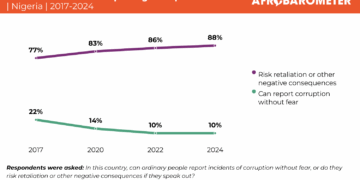WhatsApp, the messaging service owned by Meta, has unveiled an editing feature that allows users to modify their sent messages within a 15-minute timeframe.
The platform shared in a blog post that the editing function is gradually being made available worldwide and will be accessible to all users in the coming weeks.
Once a message has been edited, it will be accompanied by a visible “edited” notification.
However, the edit history will not be displayed, preventing users from viewing the message’s original content before the alteration took place.
To activate the editing feature, users can simply press down on a message and choose the “edit” option from the pop-up menu that appears.
Previously, the only way to rectify an erroneous or hastily sent message was to delete it entirely and send a new one.
The phrase “This message was deleted” would then appear, signaling to recipients that a modification had occurred.
WhatsApp expressed their excitement about providing users with greater control over their chats, enabling them to correct spelling mistakes or add additional context to messages.
To edit a sent message, users need to long-press on it and select “Edit” from the menu within a 15-minute window, according to WhatsApp.
While competing apps like Telegram and Signal already offer message editing capabilities, Twitter recently introduced the ability to edit tweets for a select group of users.
Twitter Blue subscribers, for instance, have a 30-minute window to edit their tweets after they have been published.
Mark Zuckerberg, Meta’s founder and chief executive, highlighted the WhatsApp change on his Facebook page, showcasing an example where a message was modified from “Beast of luck!” to “Best of luck!”
It is worth noting that Meta has faced challenges regarding its widely known end-to-end encryption feature, which ensures only the sender and receiver can access messages.
Currently, Meta is in a dispute with the UK government on this matter. Last month, WhatsApp and Signal jointly signed an open letter expressing concerns about the proposed online safety bill.
The companies argued that the legislation could undermine privacy and safety, as it does not explicitly protect encryption.
They warned that granting authorities the power to weaken encryption systems in the fight against terrorism or child sexual abuse content may have unintended consequences.


































